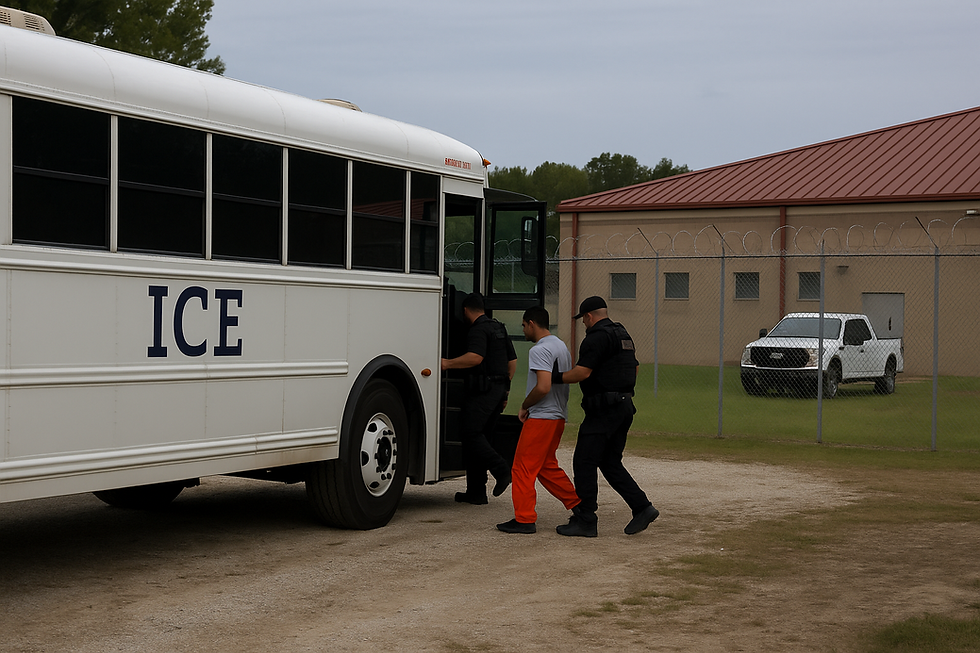‘Students cannot learn unless they feel safe’: New California bill would require schools to alert families about immigration raids
- GAB NEWS

- Sep 6, 2025
- 3 min read
Sep 03, 2025

'Students cannot learn unless they feel safe,' said Democratic Assemblymember Al Muratsuchi, who joined local school board members and education leaders from across Los Angeles County at Hawthorne High School in the City of Hawthorne to stand with and support immigrant students and families amid ongoing concerns over federal immigration raids, encapsulating a growing anxiety within California’s school communities. As the Trump administration’s aggressive immigration enforcement campaign continues, the state is moving to give families and educators advance warning when authorities show up on campuses.California lawmakers have passed a bill that would require K-12 schools, state universities, and community colleges to alert students, faculty, and staff about immigration enforcement activity. The notifications would function “similar to early warning systems in place for other campus emergencies,” according to a statement from state senator Sasha Renée Pérez, who authored the legislation, as reported by The Guardian.The bill now heads to Governor Gavin Newsom, who has until 12 October to sign it into law. If enacted, the measure would take effect immediately and remain in force until 2031. “With students returning to school, this legislation is more important than ever,” said Pérez, chair of the Senate Education Committee, according to The Guardian.
A response to fear and uncertainty
The legislation comes amid heightened concern over mass deportations and raids, which have left immigrant families and students on edge.
Federal immigration agents have arrested individuals outside schools and shopping
centers, a pattern that has thrown communities into turmoil.
“For decades, we had a bipartisan agreement to keep educational institutions,
schools and campuses, free from immigration enforcement activities.” said Al
Muratsuchi.
The bill is part of a broader slate of proposals California lawmakers advanced in
response to the federal crackdown. Other measures aim to bar immigration
authorities from entering nonpublic areas of schools or hospital grounds without a
warrant, reinforcing the principle that educational and health institutions must
remain safe spaces.
Protecting school communities
State Superintendent of Public Instruction Tony Thurmond, who oversees
California’s public school system, also voiced support for the legislation. “Our
immigrant families are living in fear, and our time to act is limited. The school year
has begun, and now is the time to make decisive efforts to protect our
communities and maintain schools as a safe place for learning,” said Thurmond,
according to The Guardian.
The bill aligns California with other Democratic-led states that have introduced
legislation this year aimed at safeguarding immigrants in their homes, workplaces,
and during encounters with law enforcement amid Trump’s mass deportation
policies.
On-the-ground impact
The urgency of the bill is reflected in recent events. As the 2025 school year
began in the Los Angeles Unified School District, officials requested that
immigration authorities avoid enforcement activity near campuses during school
hours. The district, the country’s second-largest, serves approximately 30,000
immigrant students, nearly a quarter of whom are undocumented, according to
the teachers’ union cited by The Guardian.
In August, federal immigration agents detained a 15-year-old boy at gunpoint
outside a Los Angeles high school, an incident that sparked widespread outrage
across the city.
Lessons for policymakers
The California bill underscores a fundamental lesson: Students’ ability to learn is
inseparable from their sense of safety. By requiring schools to alert families and
staff to the presence of immigration enforcement authorities, the legislation aims
not only to protect vulnerable communities but also to preserve the educational
mission itself.
As Pérez explained, “In the face of mass deportations, raids, and immigration
enforcement authorities showing up at schools, the Safe Act can help inform and
empower school communities to make the best decisions about their safety and
their family’s safety,” according to The Guardian.
For students, educators, and families, the bill represents a clear message: Schools
are more than classrooms, they are sanctuaries, and their protection is now a
matter of law.































Comments